
INTRODUCTION
Listening to the global church.
The Global Voices survey was born from a desire to listen. In an era marked by rapid change, cultural complexity, and growing global interconnectedness, mission leaders around the world face new challenges and new opportunities. The church must navigate questions of faithfulness, relevance, and effectiveness in a shifting landscape—and to do so, it must begin by listening to those closest to the work. Launched as part of the Lausanne Movement’s broader efforts to accelerate the fulfillment of the Great Commission, Global Voices gathered insights from 1,030 mission leaders across 119 countries between June and July 2025. Respondents represented a wide array of regions, generations, and ministry contexts—including pastors, marketplace professionals, theologians, educators, and creative leaders. Rather than speaking from the top down, this initiative sought to hear from the grassroots: what leaders are seeing, sensing, and hoping for in the global church today.
This report offers a synthesis of their voices. It highlights key trends shaping the future of mission, identifies both barriers and breakthroughs, and draws attention to areas of opportunity for strategic investment and prayer. From digital engagement to cultural trust, from generational leadership to theological unity, Global Voices provides a unique window into the state of the church and its readiness to respond to the calling of Jesus in our time.
What follows is not merely a set of statistics. It is a reflection of how the body of Christ is thinking and feeling in this global moment—and an invitation to discern together how we might join God more faithfully in his mission.

PREFACE
This report emerges at a moment when the church faces a complex and rapidly changing world. Globalization, digital life, cultural shifts, and political upheavals all press upon the church with urgency and weight. In such a time, the task before us is not only to proclaim Christ, but to know the world in which we proclaim him. We must know the world so Christ can be known by the world.
That conviction has shaped this Global Voices survey. Listening to more than a thousand leaders from 119 nations, we have heard stories of challenge and resilience, of cultural complexity and surprising hope. Together, these voices remind us that the church today is both tested and poised: tested by secularism, distrust, and division, yet poised to embrace unity, to invest in discipleship, and to pioneer digital frontiers for mission.
This report is not a blueprint, but a compass. My prayer is that as you read, you will hear not just the analysis of trends, but the heartbeat of the global church in our time. May these insights stir you, as they have stirred me, to walk forward with courage, rooted in truth, responsive to the times, and ready to bear faithful witness to the gospel in every corner of the world.

We must know the world so that Christ can be known by the world.
Matthew Niermann, Ph.D.
Director of Global Research
Lausanne Movement
Report Team
California Baptist University
Lilly Glennie | Designer
Eliana Rotunno | Designer

KEY FINDINGS
HOPE REKINDLED
Even though leaders report that the church’s outlook has declined compared to five years ago, there is growing hope for the future. Across all regions, and especially among younger leaders, many expect the church to flourish, Christianity’s influence in society to rise, and new opportunities to advance the Great Commission in the next five years. While challenges remain, the tone is not one of despair but of renewed hope and anticipation for God’s ongoing mission in the world.

There is a new hope in the future of the church across the globe.
FACTORS FOR GREAT COMISSION ADVANCEMENT
When asked what trends will have the greatest positive impact on the Great Commission in the next decade, leaders consistently pointed to five key drivers: collaboration and partnership, increased focus on discipleship, use of digital technology, marketplace ministry, and youth engagement. These responses reflect a shared desire for deeper unity, more holistic witness, and greater adaptability in an era of rapid change. Together, they signal a vision for the church that is younger, more connected, and equipped to serve across every sphere of life.

There is a shared desire for in an era of
rapid change.
DIGITAL SPACE AS A MISSION FIELD
There is near-universal agreement among global leaders that digital spaces are now a vital part of the mission field, with 95% identifying digital space as part of the church’s mission field and 95% calling for increased investment in digital Great Commission efforts. Yet despite this conviction, many remain unsure how well the church is currently representing Jesus in digital spaces, or if digital platforms are effective in making disciples. The opportunity is clear, but the path forward—how to be present online in a way that is both real and relevant—remains a growing edge for the global church.

95% of global leaders call for increased investment in digital great commission efforts.
THE WEALTHY REMAIN UNREACHED
Across every global region, respondents consistently identified the wealthy as the income group least effectively reached by the church. While efforts among the poor and middle-income populations are more visible and active, ministry to the affluent often lags behind. This highlights a critical blind spot in current mission strategies— one that will require renewed theological reflection, relational approaches, and intentional engagement to reach those in positions of cultural and economic influence.

These challenges require both spiritual discernment and strategic response.
LOW CONFIDENCE IN PREPARATION FOR THE EMERGING WORLD
While leaders recognize the importance of responding to emerging global challenges, many do not feel equipped to do so. Issues such as artificial intelligence, radical politics, and declining societal trust were named as significant threats to the Great Commission—yet across all regions and sectors, respondents expressed low levels of confidence in the church’s readiness to address them. This gap between awareness and preparedness highlights an urgent need for future-oriented leadership, theological engagement, and innovative strategies.

The wealthy are seen as the income group least effectively reached by the Church.
TRUSTED VOICES: CREATIVES IN THE WEST, PASTORS IN THE SOUTH
When asked who holds the most trust and impact in sharing the gospel today, global responses varied by region. In North America and parts of Europe, respondents highlighted the rising influence of Christian creatives—artists, storytellers, and digital communicators who connect with culture in compelling ways. In contrast, African and Asian leaders overwhelmingly pointed to pastors as the most trusted and impactful voices in their context. These differences reflect how cultural dynamics shape gospel witness, and they underscore the need for regionally rooted strategies that affirm both innovation and tradition.

There is a rising influence of Christian creatives who are seen as trusted gospel voices.
GLOBAL COHERENCE AMID LOCAL VARIATION
Despite differences in context, there is remarkable consistency in the insights of leaders across regions, generations, and sectors. From the digital frontier to the top barriers to mission, the survey reveals widespread agreement on the key challenges and opportunities facing the global church. While expressions vary, the underlying convictions point toward a shared missional horizon, a church increasingly aligned in its vision, even as it navigates diverse realities.

There is remarkable consistency in the insights of leaders across the globe.


‘There is a renewed sense of hope in the future of the church and its mission.’

PERCEIVED STATE OF THE CHURCH
AND GOSPEL ADVANCEMENT
GLOBAL PERCEIVED STATE OF THE CHURCH
State of Christianity Ranking; 0 Very weak, 5 = Very strong
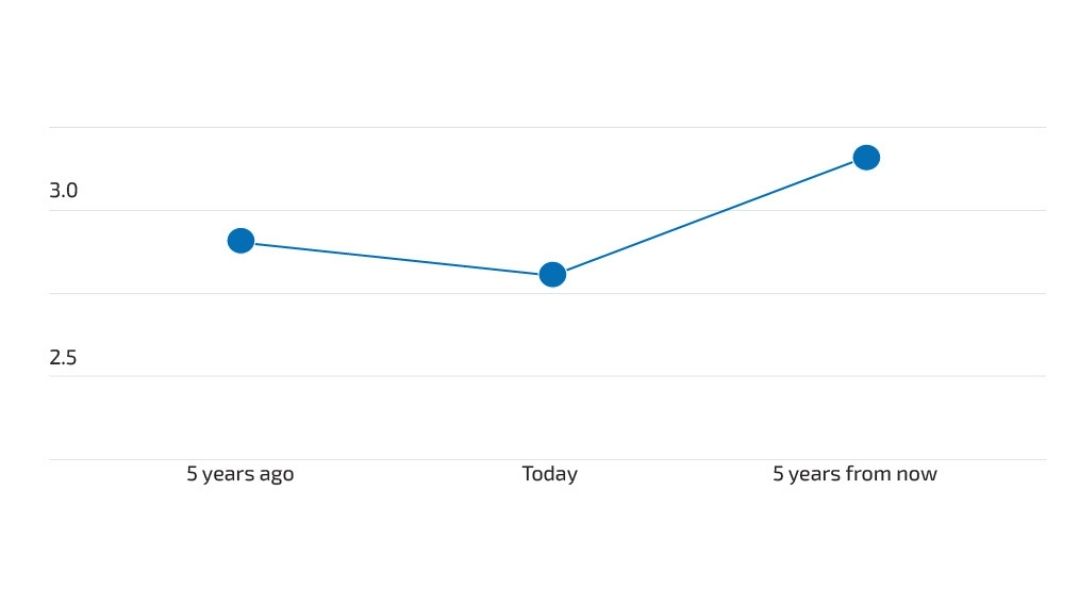
Despite a world in flux, global Christian leaders remain hopeful about the future of the church and the advancement of the Great Commission. When asked to assess the current trajectory of Christianity in their local context, respondents offered a mixed but revealing picture—marked by both sobering concerns and confident expectation.
Compared to five years ago, overall respondents indicated that the church’s flourishing has declined. Yet, when looking ahead to the next five years, a clear sense of optimism emerges. A majority believe the church will gain greater influence, and that new opportunities for gospel advancement are on the horizon.
This forward-looking hope is not limited to any one region. Respondents from Africa and South Asia reported especially high levels of optimism, while those in North America and Europe were more tempered but still leaned hopeful. The generational contrast is even more striking: younger leaders (Millennials and Gen Z) were significantly more hopeful than older generations, suggesting a rising confidence among emerging voices in global missions. Qualitative responses reinforced this trend. Words like revival, renewal, and opportunity surfaced repeatedly, with many highlighting how crisis and cultural shifts have opened doors for deeper discipleship, public witness, and creative outreach.
While challenges such as secularism, polarization, and distrust remain real, the global tone is not one of despair. Instead, leaders envision a flourishing future, not because of cultural momentum, but because of their trust in God’s sovereignty and the adaptability of the church.
Two foundational questions explored in the Global Voices study sought to assess how Christian leaders perceive the current momentum of the church in fulfilling its global mandate. The first asked, ‘To what extent do you believe the global church is making progress toward fulfilling the Great Commission (Matthew 28:18–20)?’ The second asked, ‘In your perception, how much of a priority is the Great Commission for most Christians in your country today?’ While there is broad agreement that the church is moving forward in its mission, the sense of progress is cautious rather than triumphant. Only 30% of respondents expressed strong confidence that the global church is making ‘significant progress’ toward the Great Commission.
This tension is further underscored by perceptions of local Christian commitment. When asked whether the Great Commission is a high priority for most Christians in their country, responses revealed a wide range of conviction. Approximately 50% of respondents believe it is only a ‘low priority’ or ‘not a priority’ at all for the average believer. This suggests a perceived disconnect between institutional or leadership-level commitment to mission and the everyday missional engagement of ordinary Christians.
Together, these findings paint a complex picture: leaders recognize progress, but not at the pace or depth they hope for. The Great Commission is acknowledged, but not deeply prioritized by the broader church population in many contexts. This points to a potential strategic opportunity: revitalizing missional passion at the grassroots level may be key to sustained global gospel impact.
REGIONAL PERCEPTIONS OF THE CHURCH
State of Christianity Ranking; 0 = Very Weak, 5 = Very strong
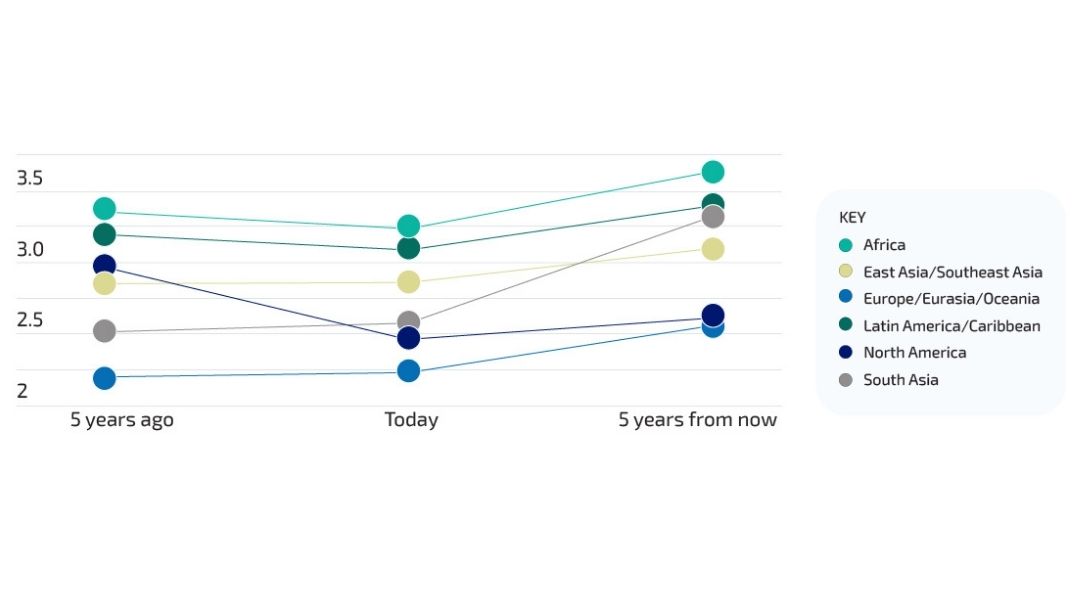
GENERATIONAL PERCEPTIONS OF THE CHURCH
State of Christianity Ranking; 0 = Very Weak, 5 = Very strong
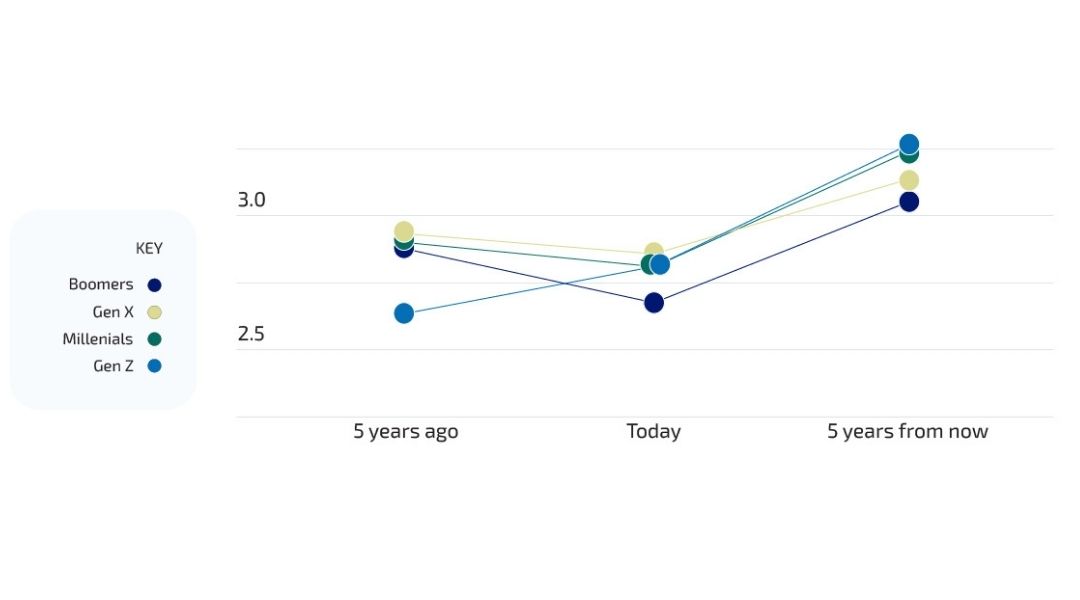
There is a perceived disconnect between institutional or leadership-level commitment to mission and the everyday missional engagement of Christians.
GREAT COMISSION PRIORITY
Perceived priority of the Great Commission in local country.
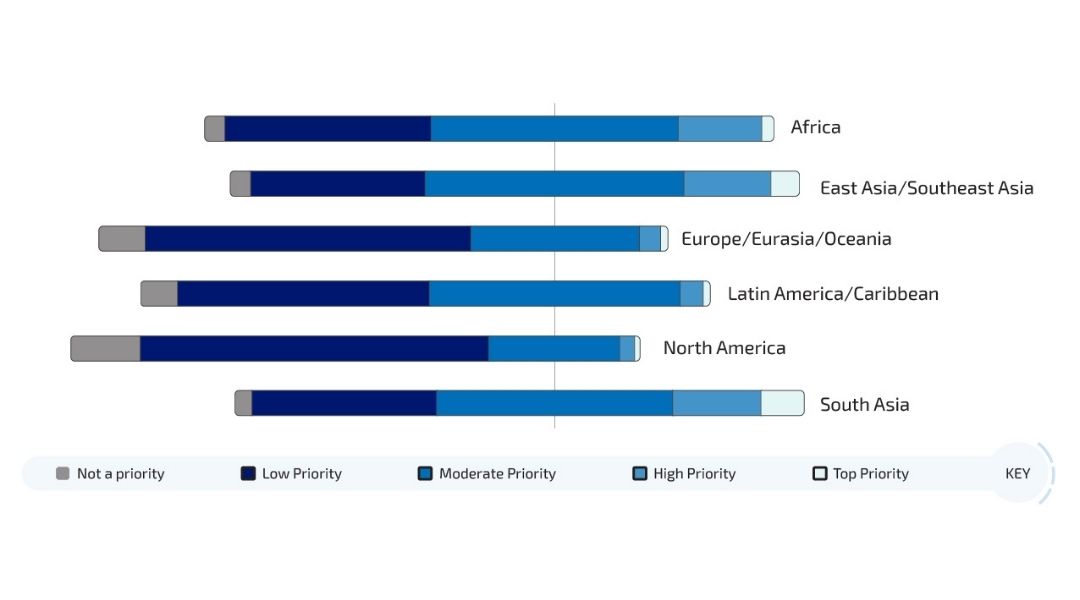
GREAT COMISSION PROGRESS
Perceived progress of the Great Commission in local country.
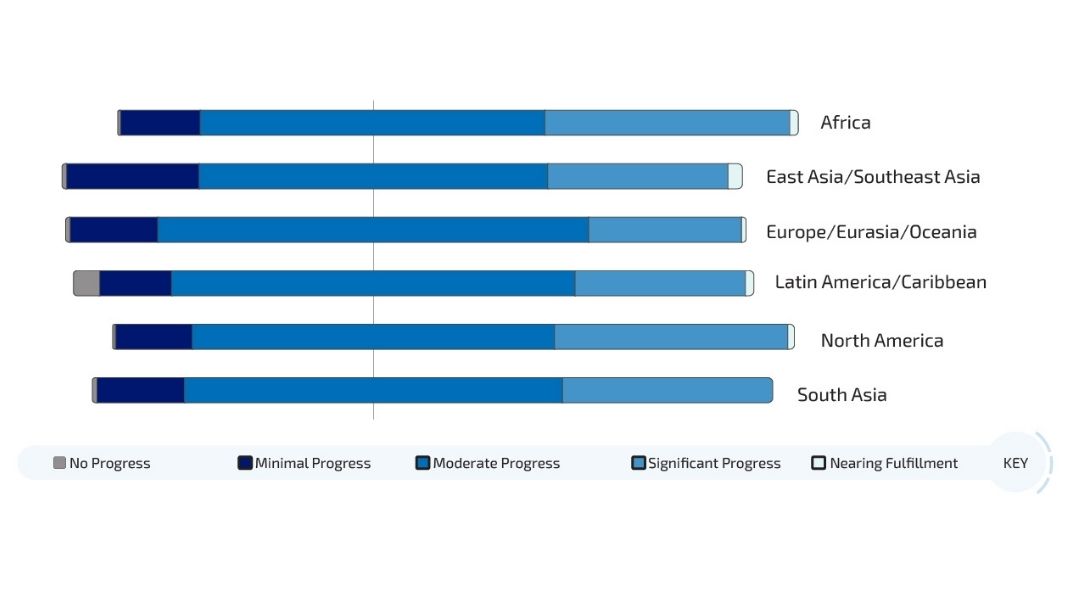


‘Christians living out their faith are the most trusted voices for the gospel.’

GLOBAL TRUST
AND THE CHURCH
CHRISTIAN INFLUENCE ON SOCIETY – REGIONS
Perceived Christian Influence in Country’s Society, 0=Very Weak, 5 = Very Strong
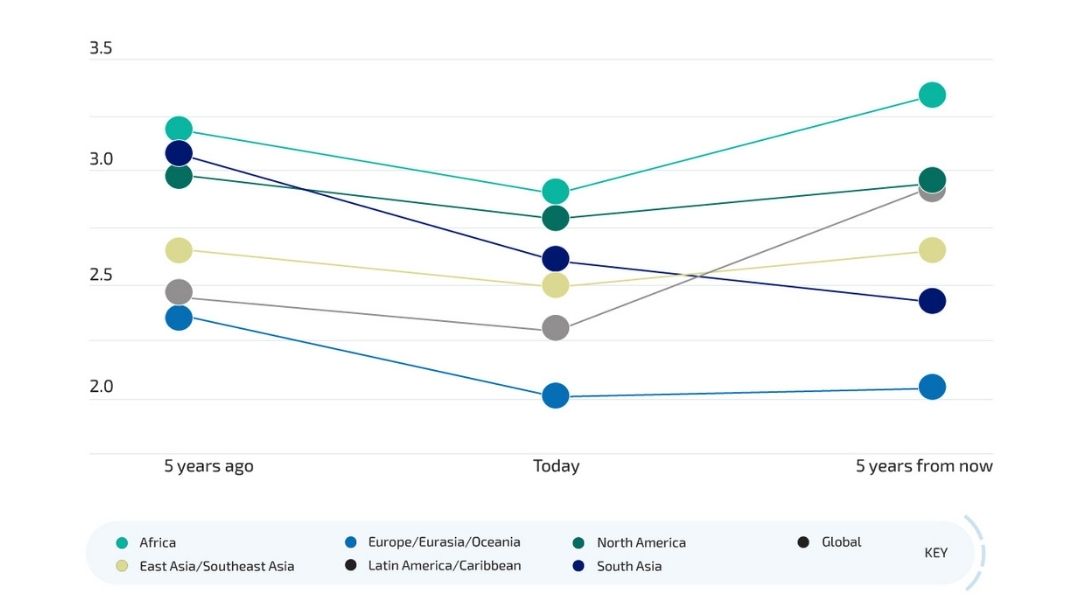
How much does the world trust Christianity today? It depends on where you live.
Across all responses, the average level of trust in Christianity was 5.9 out of 10. But regional differences are striking. In Africa (7.4) and South Asia (7.1), trust in Christianity remains strong, showing that the church is seen as a positive force in society. Latin America (6.6) and East/Southeast Asia (5.7) report moderate trust, while North America (4.5) and Europe/Eurasia/Oceania (3.9) report much lower trust levels, reflecting the church’s more marginal role in public life.
When asked who has the most trust and impact in sharing the gospel, one answer topped them all: everyday Christians. Across regions, respondents said that ordinary believers—those living faithfully in their communities—are the most trusted voices for the gospel. After that, trusted voices vary by region.
GLOBAL TRUST IN CHRISTIANITY
Perceived trust in Christianity in country. 0=No Trust, 10=Very High Trust
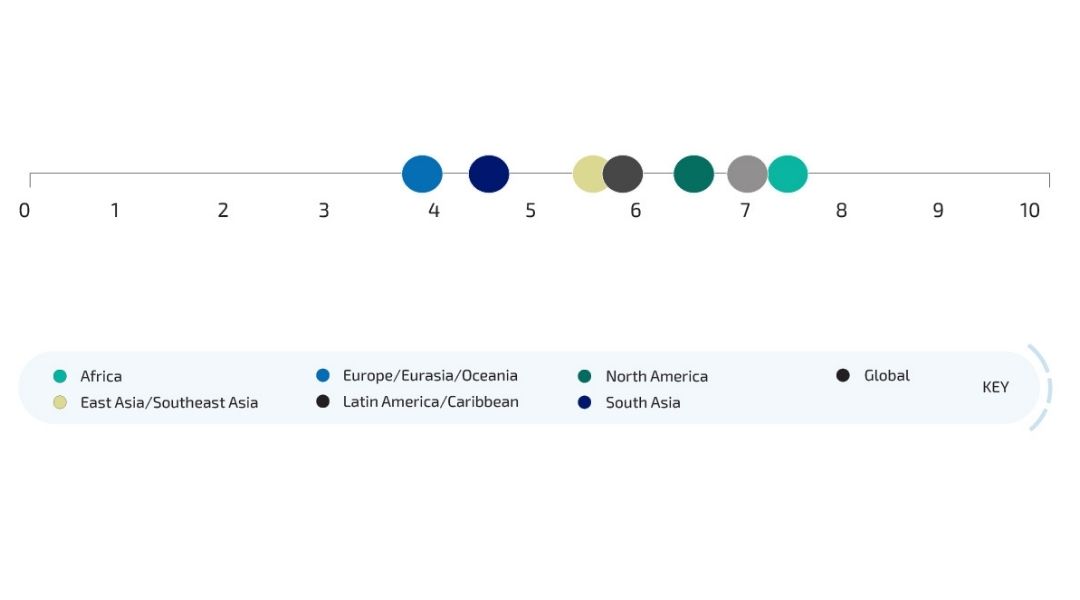
In North America and East/Southeast Asia, Christian creatives (artists, storytellers, and filmmakers) were the second-most trusted—reflecting the growing influence of cultural engagement and digital storytelling. In Africa, pastors were the second most trusted voice next to average Christians.
These patterns show how gospel credibility today isn’t limited to formal leadership. While traditional figures like pastors remain important in many regions, newer voices are gaining ground—especially in cultural and digital spaces. From creatives in the West to evangelists in Africa, and most of all through the everyday witness of ordinary believers, the message of Jesus is carried by those who are trusted, relatable, and present in people’s lives. The church’s effectiveness in mission may depend not just on what is said, but on who is saying it, and how much they are trusted.
SOCIETAL TRUST
What level of trust does your country have in Christianity?
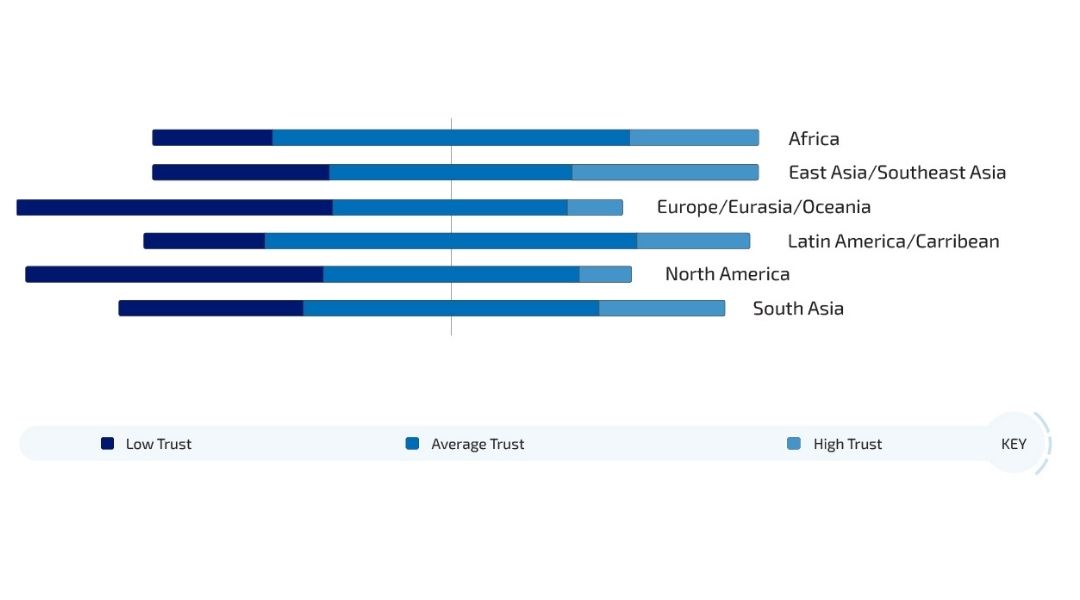
TRUSTED GOSPEL VOICES
In your local context, who do you believe has the most trust and impact when sharing the gospel?
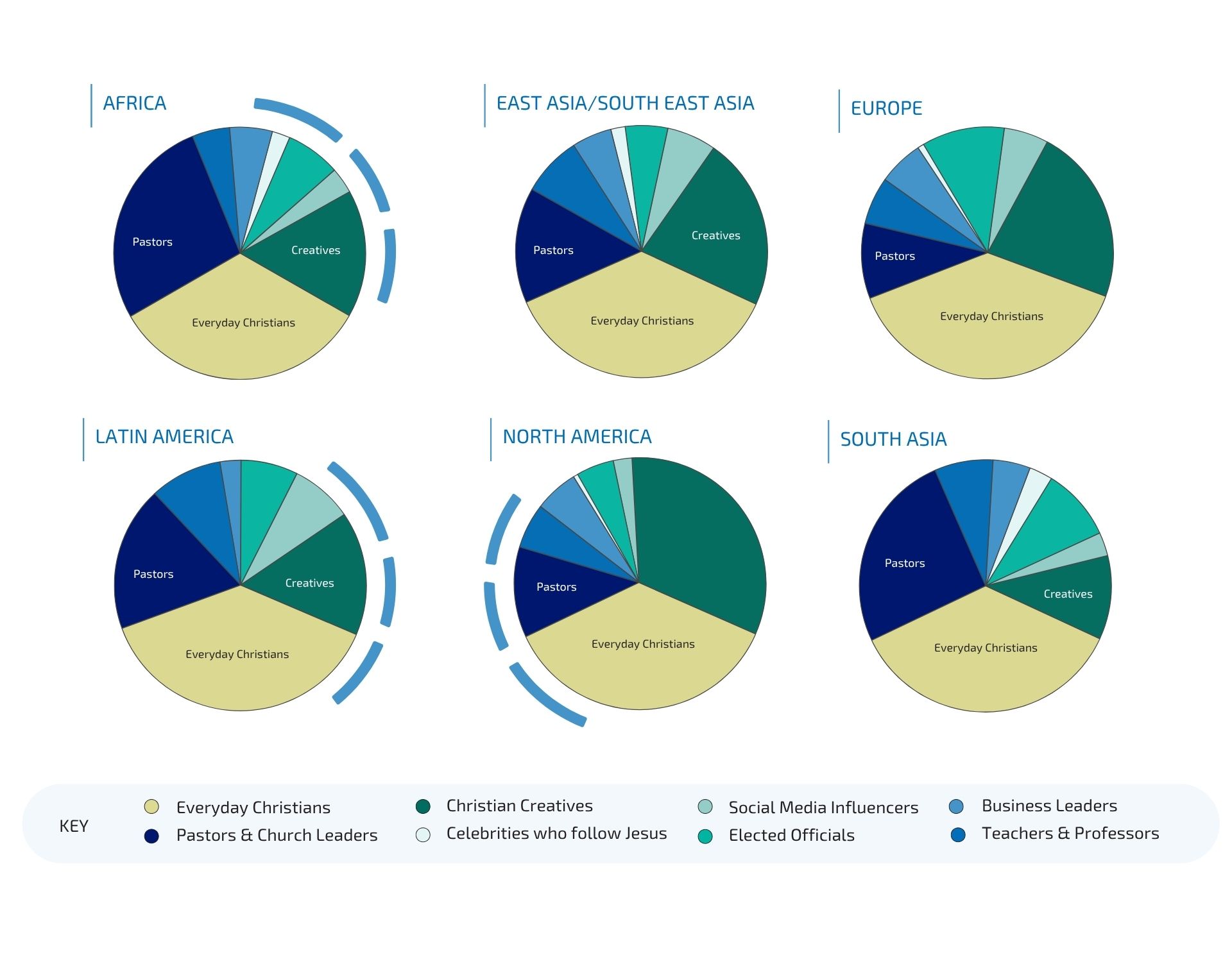


‘95% of global leaders affirm that digital spaces are part of the mission field today.’

DIGITAL
MISSIONS
PERCEPTION OF DIGITAL MISSIONS
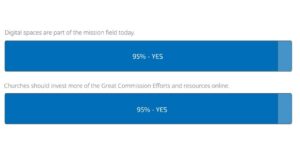
Across the global church, there is near-unanimous agreement: the digital world is now part of God’s mission field. In the Global Voices survey, 95% of leaders affirmed that digital spaces are a place for ministry, evangelism, and discipleship. Few topics saw such widespread consensus across regions, generations, and ministry sectors. The conviction is clear—the internet is no longer just a tool for communication, but a genuine space where communities are formed, lives are shaped, and the gospel can be proclaimed.
Yet alongside this conviction lies a sobering tension. While nearly all respondents see digital space as part of the mission field, far fewer feel that the church is currently representing Jesus online in a way that feels real and relevant. The contrast is striking: in our survey’s comparative chart, nearly every leader endorsed the importance of digital engagement, yet far fewer agreed that the church’s digital presence reflects the authenticity and relational depth of Christ. This gap between vision and reality underscores one of the great frontiers for mission today.
Another striking finding emerges when looking at actual practice. In a second visualization (see donut chart), we examined how many leaders have personally shared their faith or discussed spiritual topics online. Across most regions, over 85% said yes, with North America (95%) and Africa (93%) leading the way. The lowest rates were in East and Southeast Asia (84%), but even here, the majority are actively sharing faith digitally. In other words, while many leaders feel the church as an institution has not yet mastered its online witness, they themselves are already experimenting, risking, and learning in digital spaces.
The lowest rates were in East and South-
east Asia (84%), but even here, the major-
ity are actively sharing faith digitally. In other words, while many leaders feel the church as an institution has not yet mastered its online witness, they themselves are already experimenting, risking, and
learning in digital spaces.
As one African leader put it, ‘Digital space is the new village square—where people gather, argue, laugh, and learn. If the church is absent there, then it is absent from where life is actually happening.
DIGITAL DISCIPLESHIP EFFECTIVNESS
Digital Platforms are effective ways to make disciples.
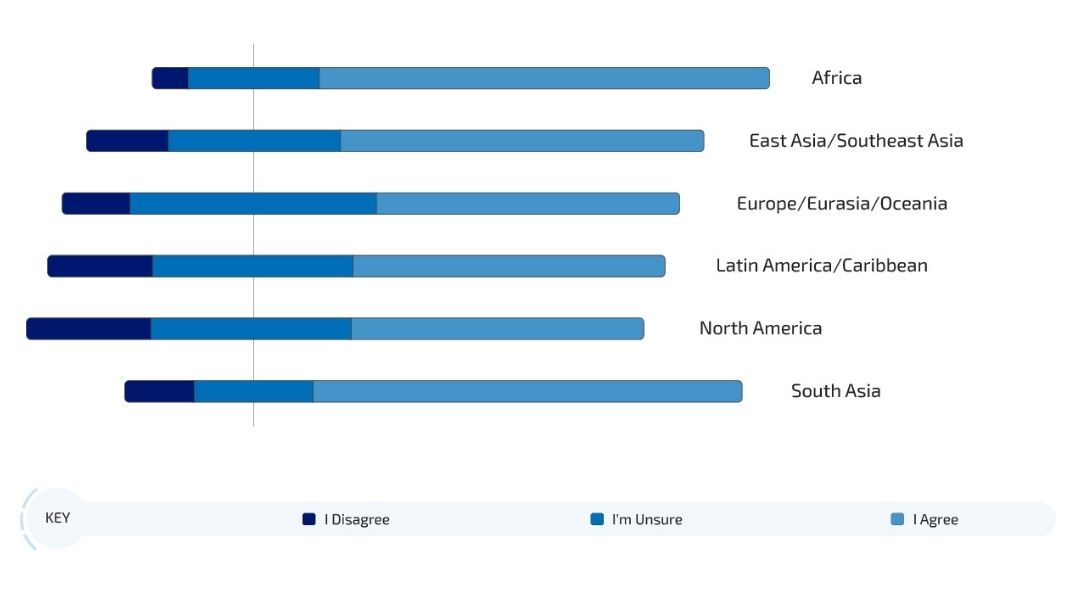
SHARING FAITH ONLINE
% of people who have shared their faith or discussed spiritual topics online
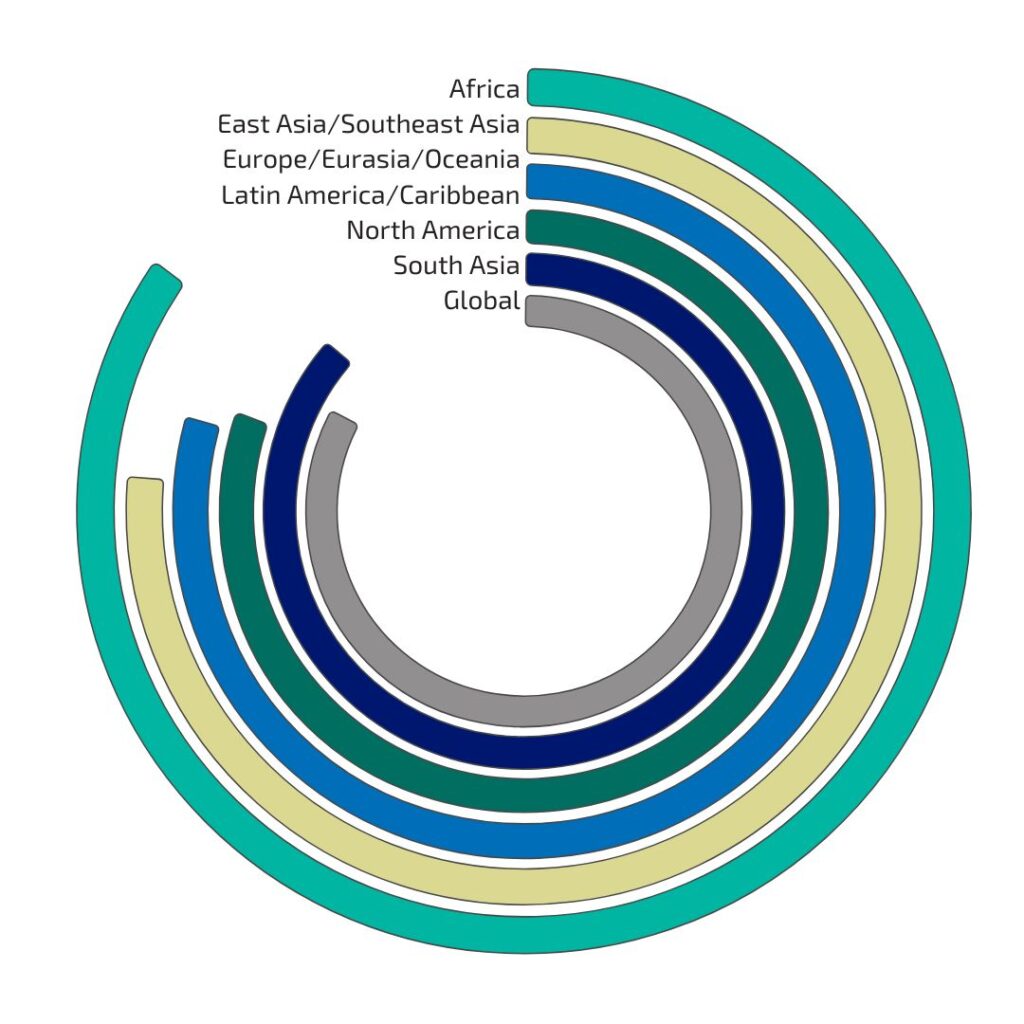
Digital space is the new village square, where people gather, argue, laugh, and learn.
If the Church is absent there, then it is absent from where life is actually happening.
VARIANCE BETWEEN PERCEPTION OF DIGITAL SPACES
AS MISSIONS FIELD AND CURRENT EFFECTIVENESS
Percentage of survey participants that agreed with the statement
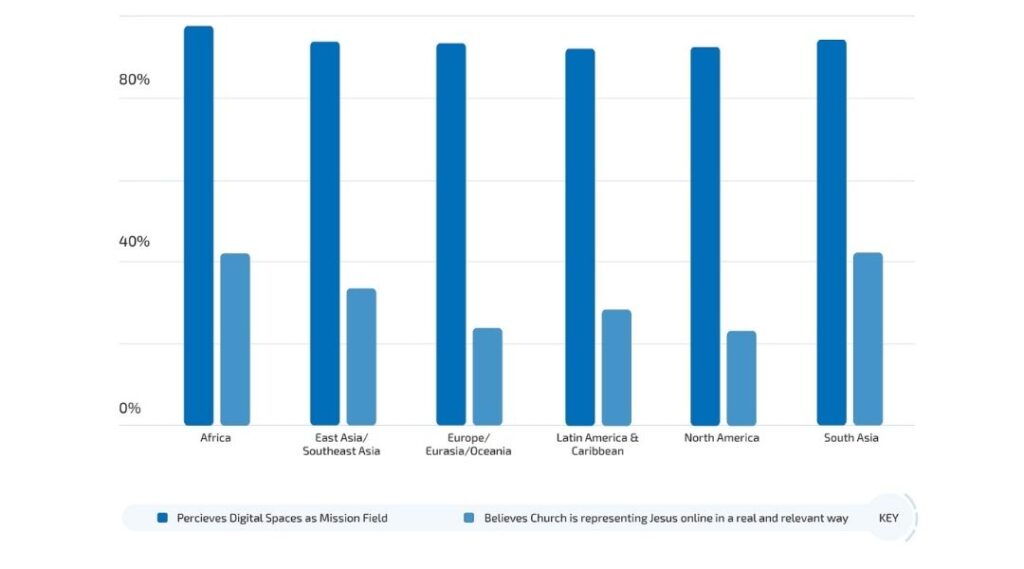
Such comments illustrate the lived convic- tion that online ministry is not optional, but essential to credible gospel witness in this century.
These findings point to both urgency and opportunity. On one hand, the Church is underprepared: questions around au- thenticity, discipleship depth, and cultural credibility online remain unresolved. On the other, the sheer scale of digital partic- ipation—billions of daily users across plat- forms—means that the potential reach is unparalleled in Christian history. Leaders are calling not simply for more invest- ment in technology, but for a theologically
grounded digital presence that combines creativity, relational depth, and discipleship intentionality.
The call, then, is not whether the church will be online, but how it will be online. Will we be present in ways that mirror Christ’s incarnation—personal, authentic, and transformative—or will we settle for shallow presence that leaves little lasting impact? The survey results suggest a church ready to embrace this mission field, but still in need of models, training, and imagination to represent Jesus in ways that feel both faithful and relevant in the digital age.

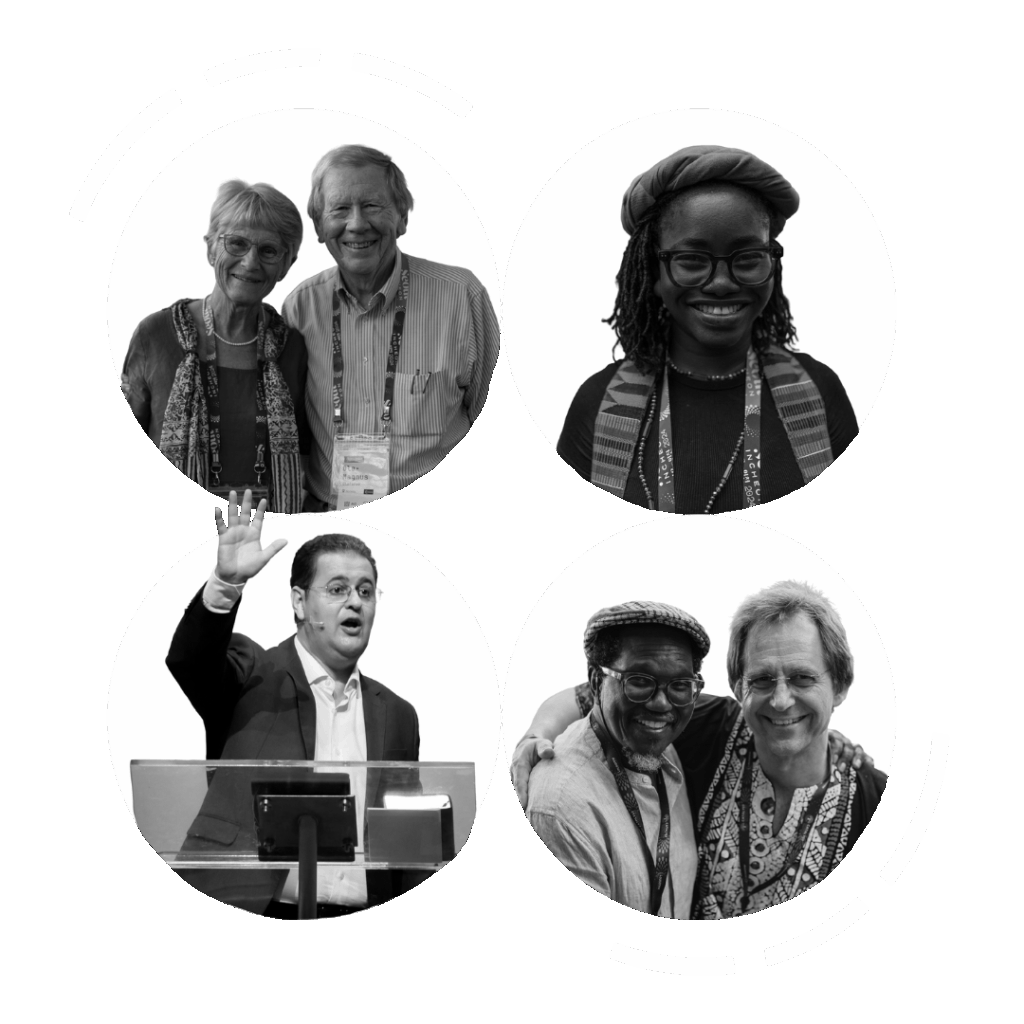
‘No single denomination, organization, or region can accomplish the task alone.’

CATALYZING
THE GREAT COMMISSION
When asked which trends will most positively shape the future of mission, global leaders identified a shared set of catalysts that reveal both hope and strategy. By a significant margin, the most widely cited was collaboration and partnership. Leaders repeatedly emphasized that no single denomination, organization, or region can accomplish the task alone. Instead, unity across networks, institutions, and borders is seen as the indispensable engine for global gospel advance. As one respondent from South Asia put it, ‘Collaboration is no longer optional—it is obedience.’
POSITIVE TRENDS CATALYZING THE GREAT COMMISSION
Trends thought to have the biggest positive impact the Great Commission in next 10 years
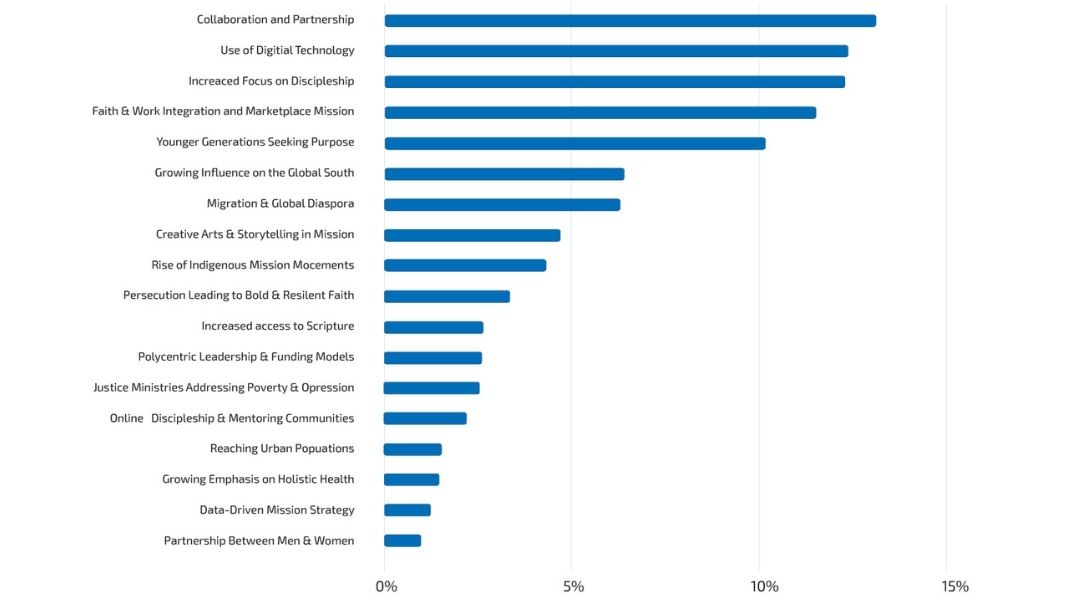
TOP 5 CATALYTIC TRENDS BY REGION
Trends thought to have the biggest positive impact the Great Commission in next 10 years
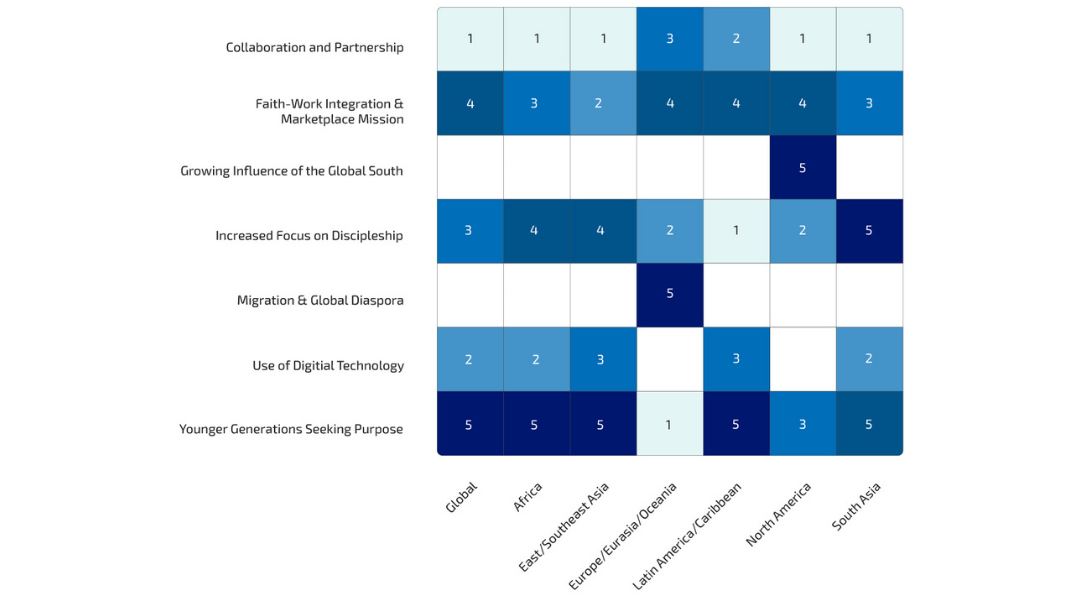
Close behind were two further drivers: discipleship and digital innovation. For many, renewed focus on discipleship represents a corrective to shallow evangelism and cultural Christianity, a call to form resilient believers who can withstand secular pressure and lead others faithfully. Digital technology, meanwhile, is recognized as a force multiplier—opening new channels of reach while also demanding new models of authenticity and presence.
Two additional catalysts consistently emerged: marketplace ministry and youth engagement. The workplace is increasingly seen as one of the most strategic contexts for witness, where faith is lived out in daily decisions and where cultural influence is most directly exercised. Youth engagement, meanwhile, reflects an urgency to equip the rising generation. Leaders around the world spoke of young people’s hunger for purpose, creativity, and justice, and the opportunity to channel this energy toward Christ’s mission.
Regional differences bring nuance to these findings. In North America and parts of Europe, workplace integration ranked especially high, reflecting secularized environments where professional credibility is often the first bridge to gospel witness.
In Africa and Asia, the growing influence of the Global South was frequently highlighted, with respondents noting that missionary energy, theological vibrancy, and church growth are increasingly centered outside the West. Migration and diaspora dynamics also received strong mention, particularly in Europe and the Middle East, where population flows are reshaping the missional landscape.
Taken together, these catalysts reveal a vision for a church that is younger, more connected, and more holistic in its witness. Collaboration is not only structural but spiritual, digital tools serve relational depth, and marketplace discipleship affirms vocation as mission. The invitation is clear: to embrace these opportunities not as passing trends, but as Spirit-given pathways for accelerating the Great Commission in our generation.
GLOBAL VOICES
Wisdom from survey participants (some quotes are shortened or paraphrased for length)

COLLABORATION
AND PARTNERSHIP
“Collaboration is no longer optional— it is obedience.”
“Partnership is not optional anymore — it is the way mission must be done.”
“We need less duplication and more cooperation across denominations and ministries.”

DISCIPLESHIP
“Discipleship is the missing link —
without it, evangelism is shallow.”
“Our churches must form resilient
“The Great Commission is not fulfilled
until people are walking with Christ daily.”

DIGITAL
INNOVATION
“Digital space is the new mission field — if we ignore it, we ignore where people live.”
“Young people are discipled by YouTube more than by pastors. The Church must step into that gap.”
“Technology multiplies reach, but we must ensure it carries depth.”

YOUTH
ENGAGEMENT
“The next generation is not just the future — they are catalysts today.”
“Young people are hungry for purpose;
the Church must invite them into mission, not just entertain them.”
“If we fail to disciple Gen Z, we lose the future of the Church.”


‘The greatest threats to the Great Commission are not only external pressures but also internal fractures.’

BARRIERS TO
THE GOSPEL
TOP 5 PERCEIVED BARRIERS TO THE GREAT COMMISSION
Trends thought to have the biggest negative impact the Great Commission in next 10 years
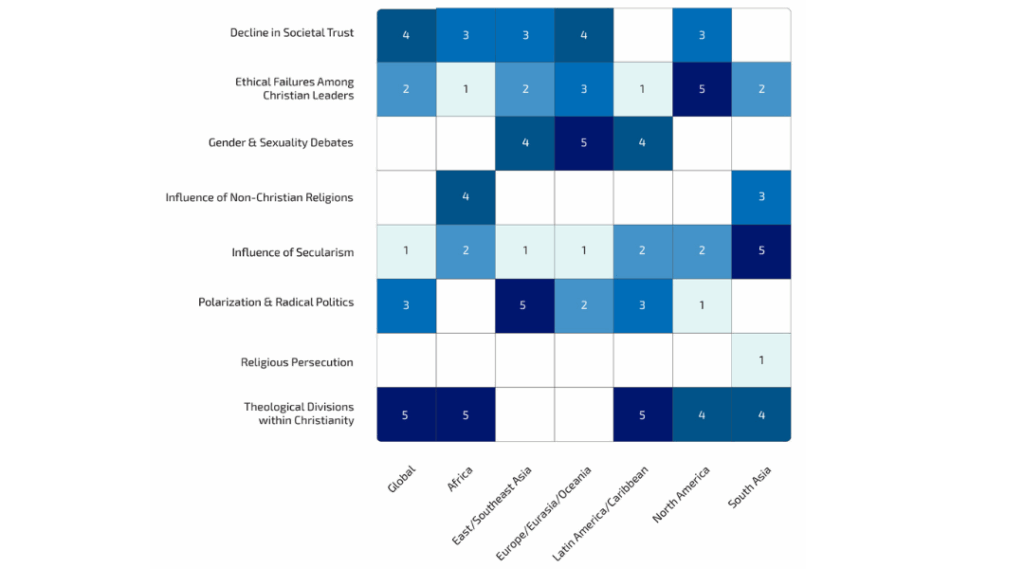
Leaders around the world are sounding the alarm on the growing obstacles to gospel witness in their local contexts. When asked about the greatest challenges to the fulfillment of the Great Commission today, they pointed not only to cultural resistance but also to deep fractures within the church itself. The two most frequently cited barriers were secular society and the ethical failures of Christian leaders. Both strike at the credibility of the church’s witness, one from without, the other from within.
Secularism was described as a rising tide in nearly every region. In Europe and North America, it has reshaped public life, relegating faith to the margins and eroding Christianity’s influence in culture. In Asia and Latin America, leaders reported secular attitudes growing among younger generations, often fueled by digital media and globalization. The result is a climate where faith is not opposed outright but often dismissed as irrelevant.
Ethical failures among Christian leaders were named with equal force. Respondents lamented that scandals of corruption, abuse, and moral compromise have damaged trust both inside and outside the church. Leaders recognized that no strategy can overcome the loss of credibility that results when integrity is compromised. As one African pastor noted, ‘When the shepherd falls, the sheep scatter.’
Other barriers cut across cultural and political lines. Polarization and radical politics were cited frequently in the West, where ideological division has seeped into churches and distracted from mission. Declining societal trust emerged globally, with leaders recognizing that the church must now earn relational credibility in contexts of suspicion and doubt. Theological divisions were also seen as a hindrance, as infighting and fragmentation cloud the clarity of the gospel message itself.
Regional differences provide further nuance. In South Asia, religious persecution was described as an ever-present challenge, with believers facing restrictions, harassment, and violence. In parts of Africa and Latin America, the influence of non-Christian religions was highlighted as a growing force. These local realities remind us that barriers are not uniform, and strategies must be contextual.
Taken together, the responses paint a sobering picture: the greatest threats to the Great Commission are not only external pressures but also internal fractures. Leaders called for renewed emphasis on integrity, unity, and gospel clarity. To advance faithfully in this century, the church must not only resist cultural headwinds but also embody the holiness, humility, and credibility that make its witness trustworthy.
BARRIERS TO THE GOSPEL
% of respondents who ranked trend in top 3 most negative trend for the Great Commission.
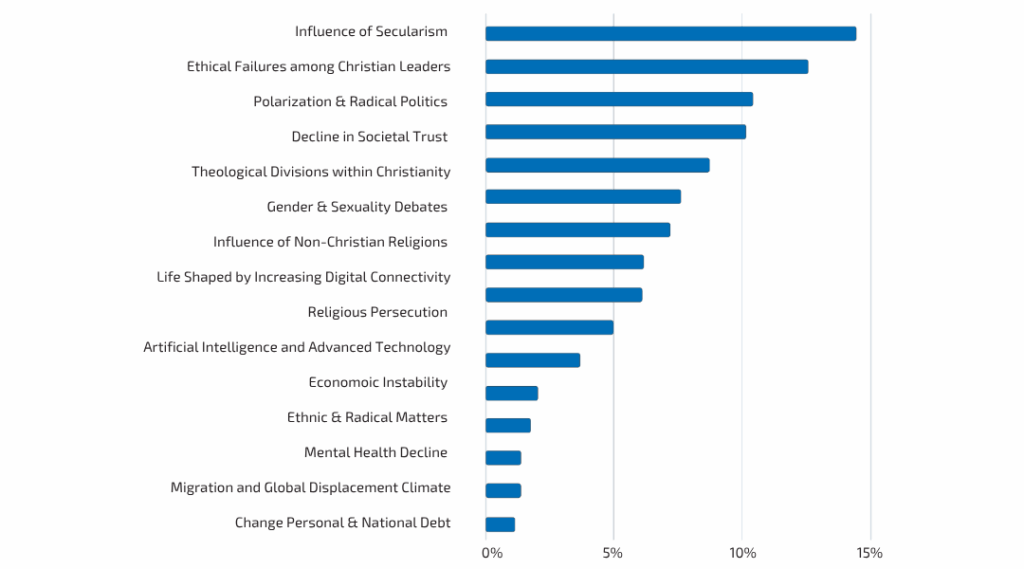
RANKED BARRIERS TO THE GOSPEL
Trends thought to have the biggest negative impact the Great Commission in next 10 years
AFRICA
- Ethical failures among Christian leaders
- Influence of secularism
- Decline in societal trust
- Influence of non-Christian religions
- Theological divisions within Christianity
EUROPE
- Influence of secularism
- Polarization and radical politics
- Ethical failures among Christian leaders
- Decline in societal trust
- Gender and sexuality debates
NORTH AMERICA
- Polarization and radical politics
- Influence of secularism
- Decline in societal trust
- Theological divisions within Christianity
- Ethical failures among Christian leaders
EAST ASIA
- Influence of secularism
- Ethical failures among Christian leaders
- Decline in societal trust
- Gender and sexuality debates
- Polarization and radical politics
LATIN AMERICA
- Ethical failures among Christian leaders
- Influence of secularism
- Polarization and radical politics
- Gender and sexuality debates
- Theological divisions within Christianity
SOUTH ASIA
- Religious persecution
- Ethical failures among Christian leaders
- Influence of non-Christian religions
- Theological divisions within Christianity
- Influence of secularism
GLOBAL VOICES
Wisdom from survey participants (some quotes are shortened or paraphrased for length)

SECULARISM
“Secular culture tells us faith is irrelevant — this is one of our greatest battles.”
In my country, the church is no longer opposed, it is ignored.”
“The younger generation sees Christianity as outdated, shaped more by media than the gospel.”

ETHICAL FAILURES OF CHRISTIAN LEADERS
“When leaders fall, the mission stumbles; integrity cannot be optional.”
Scandals do more damage than persecution because they come from inside.”
“The world does not trust our message if our leaders do not live it.”

POLARIZATION & RADICAL POLITICS
“The church is divided by the same politics as society, and our witness suffers for it.”
Politics has replaced discipleship as the loudest voice in many pulpits.”
“When we mirror political ideologies instead of Christ, we lose credibility with both sides.”

THEOLOGICAL
DIVISIONS
“Disunity does more than hinder cooperation; it clouds the message of Christ itself.”
When Christians fight each other, the world stops listening to us.”
“Theological debates are necessary, but they can- not become walls that block the gospel.”

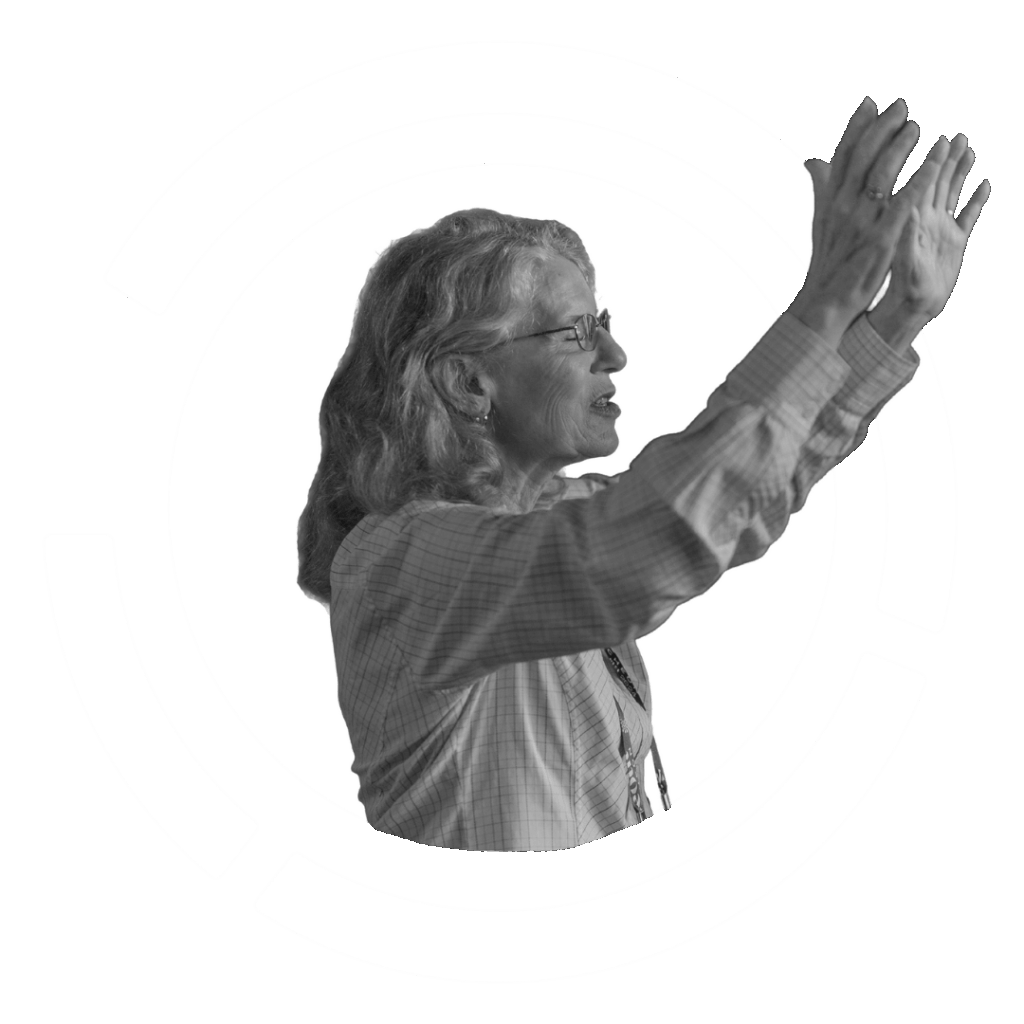
‘The opportunity is urgent: to raise up a globally-minded, culturally aware, & theologically grounded church.’

PREPARATION FOR AN EMERGING WORLD
PREPARATION FOR EMERGING WORLD
Top global trends where the church feels least prepared
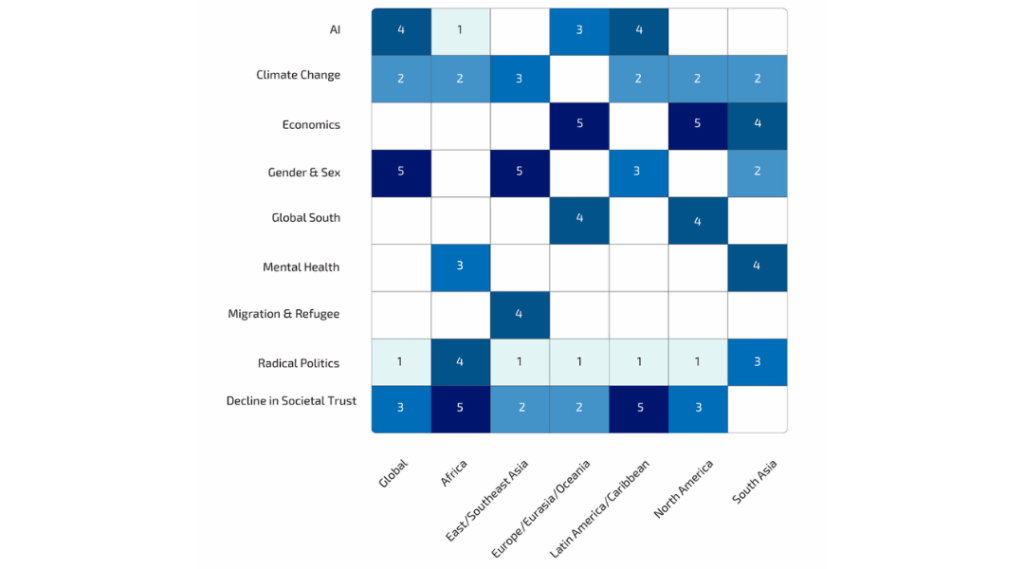
As global trends reshape societies at an unprecedented pace, church leaders are wrestling with a sobering reality: the church is underprepared to engage many of the forces shaping the next generation. Across nearly every domain, from AI to climate change, gender to migration, leaders expressed concern that the church in their context is lagging behind the cultural moment, often reactive rather than prophetic.
Three themes stood out most clearly. First, the rise of digital life, including AI, and broader digital transformation, elicited some of the lowest confidence scores. While leaders globally affirmed the importance of digital missions, they are far less confident in the church’s readiness to navigate the ethical, relational, and theological complexities that come with it. Second, the church is struggling to offer credible responses to pressing cultural questions around gender, identity, and mental health, areas where pastoral sensitivity, theological clarity, and public witness intersect. Third, while many recognized the rise of the Global South and migration as missional opportunities, most felt their churches were ill-equipped to respond meaningfully.
Regional variation reveals nuanced concerns. In the West, anxiety was highest around polarization, identity debates, and societal trust. In the Global South, concerns were more evenly distributed, though still marked by a perceived gap between global shifts and local church capacity. Generationally, younger leaders are often more aware of emerging issues, but also more vocal about the church’s lack of readiness.
In sum, leaders see a widening gap between the world’s questions and the church’s preparedness to respond. The opportunity is urgent: to raise up a globally-minded, culturally aware, and theologically grounded church, one ready not only to survive these global shifts, but to prophetically lead within them.
PERCEIVED PREPAREDNESS OF THE CHURCH ON TRENDS
Percentage of global leaders who feel the church is prepared to engage with the global trend
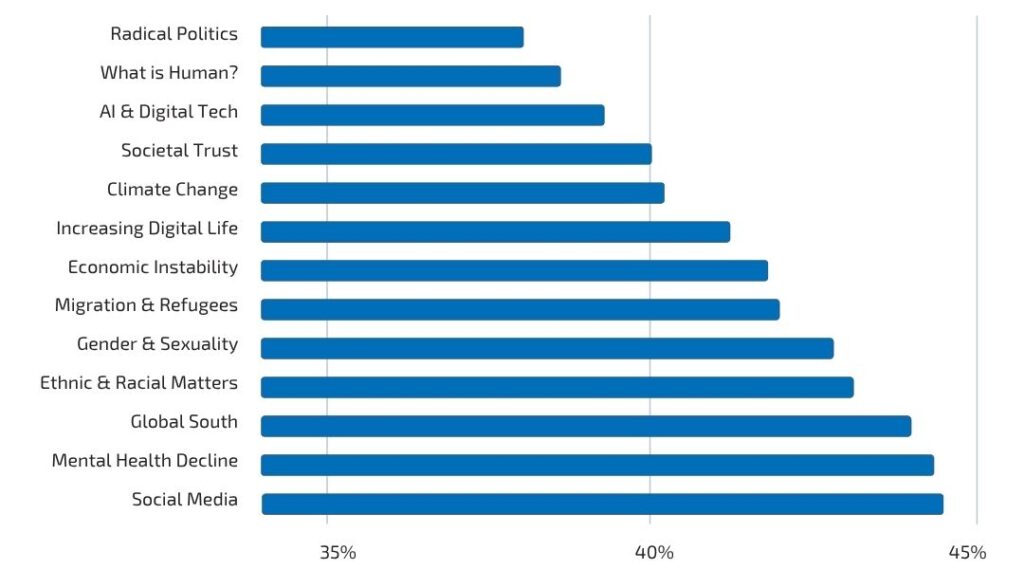
GLOBAL REFLECTIONS
Survey Participant Reflections on Trends (some quotes shortened or paraphrased)

DIGITAL LIFE / AI
“Technology is moving faster than our theology, we are unprepared
to guide it.”
“AI and digital life are shaping
disciples more than pastors are.”
“The Church talks about going online, but we are not ready for the ethical challenges that come with it.”

GENDER, IDENTITY
MENTAL HEALTH
“We cannot remain silent on issues of what it means to be human – the next generation is asking, and the Church is not clear in its answers.”
“Mental health is a discipleship issue,
not just a medical one.”
“When our responses to gender are only combative, we lose credibility with those searching for truth and belonging.”

GLOBAL SOUTH & MIGRATION
“The rise of the Global South is God’s gift but many churches are not prepared to learn from it.”
“Migration is a mission opportunity on our doorstep, but most churches do not see it.”
“Cross-cultural witness is no longer optional, the nations are already here.”

REGIONAL /
GENERATIONAL CONCERNS
“In the West, our biggest barrier is not persecution but polarization.”
“Young leaders are more aware of these global shifts, but they feel the Church is moving too slowly.”
“The local church is often the last to adapt, even though the world is changing right outside its doors.”

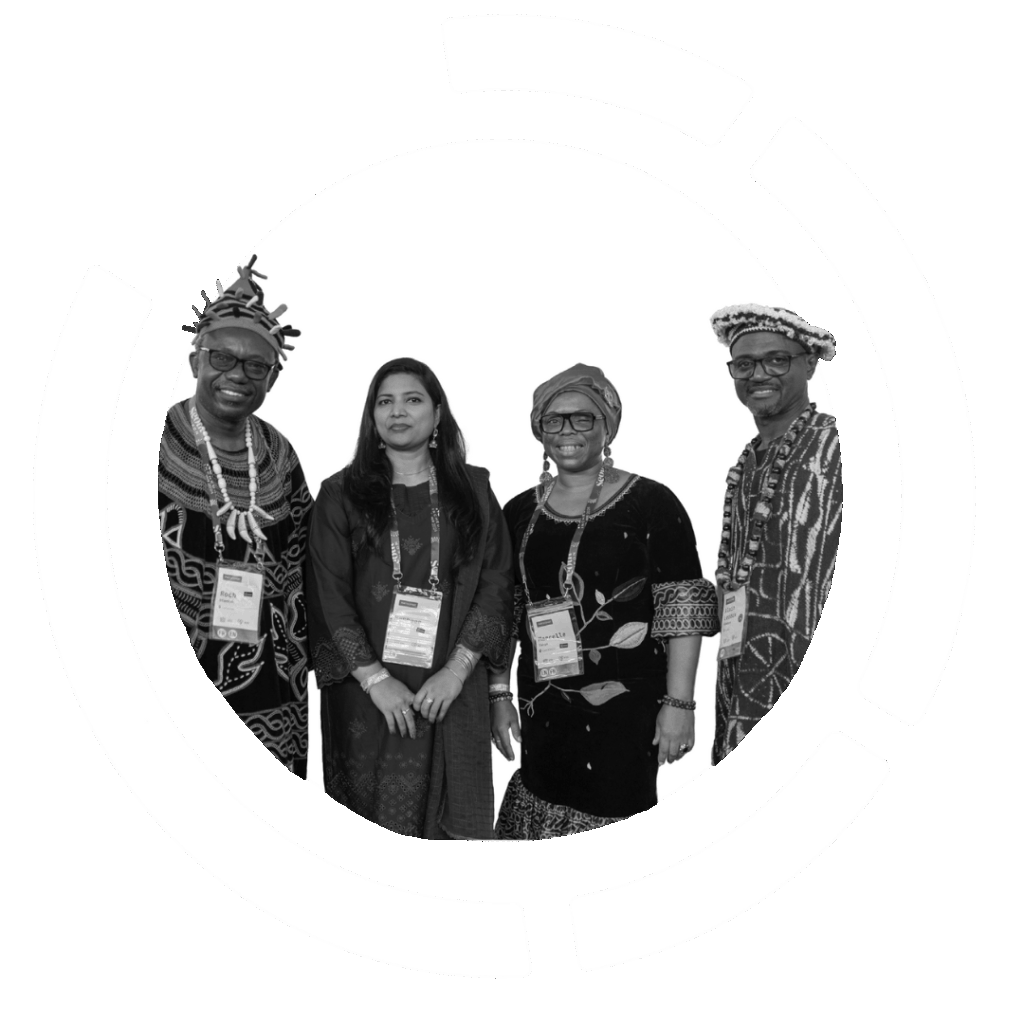
‘The path forward demands a renewed commitment to the margins: economic, generational, and geographic.’

REACHING
ALL PEOPLE
GREAT COMMISSION ADVANCEMENT WITH POPULATIONS
Percentage of leaders who feel we are effectively advancing the Great Commission in certain populations.
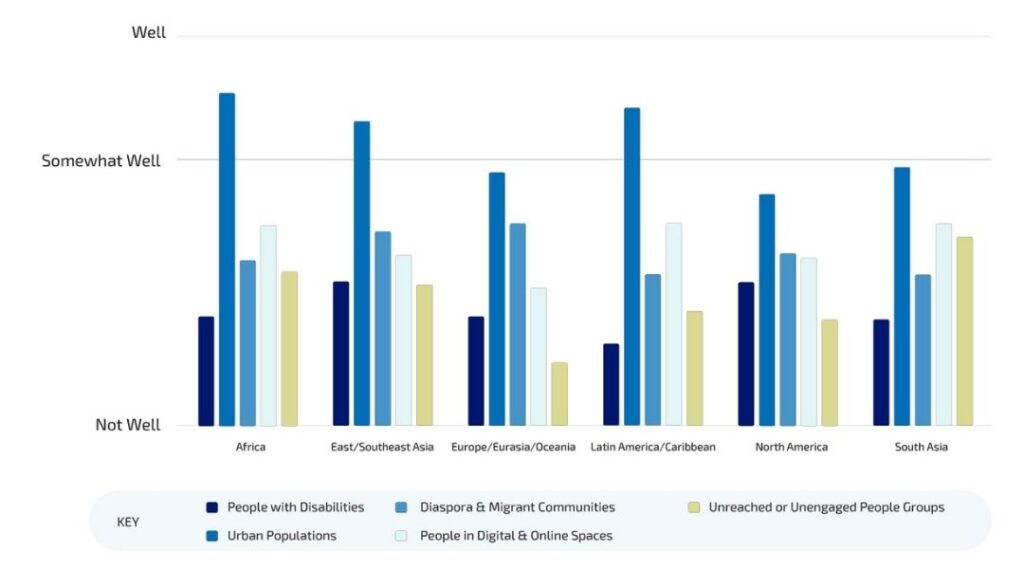
As the global church seeks to fulfill the Great Commission in a rapidly diversifying world, leaders are sounding an alarm: many churches are falling short in reaching all people.
Whether across income brackets, generational divides, or marginalized populations, there is a widespread sense that the church is struggling to extend its witness with consistency, clarity, and cultural responsiveness. Three gaps emerge most clearly.
First, as the church seeks to carry the gospel to every corner of society, a striking reality emerges: the wealthy are perceived as least effectively reached. While churches report active engagement with middle-and low-income communities, far fewer feel confident in their ability to reach the affluent.
This disparity may reflect the complexity of ministering in high-income contexts, where traditional
approaches to evangelism and discipleship often prove less effective and new strategies are still emerging.
Second, generational gaps persist. Many leaders believe the church is engaging middle-aged adults relatively well but falling behind with younger and older generations. This signals a challenge in both innovation and longevity, failing to disciple the emerging generation while neglecting the wisdom and care owed to the aging.
Third, engagement with specific social groups, especially people with disabilities, diaspora communities, and those in digital spaces, lags behind broader outreach efforts. These are precisely the groups that often require intentional contextualization and pastoral creativity, yet they appear to be least prioritized.
REACHING PEOPLE OF ALL INCOME LEVELS
Perception of the church’s effectiveness in reaching varied income levels in respondent’s country.
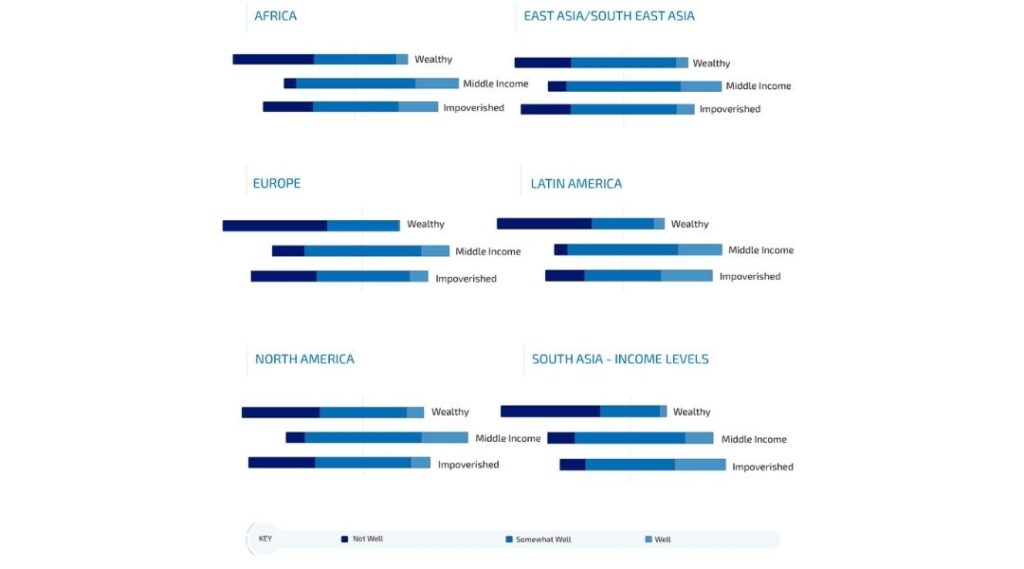
Across all groups, one area stood out as most neglected: unreached and unengaged people groups. Despite decades of global mission emphasis, this group received some of the lowest scores. Whether due to strategic inertia, limited awareness, or shifting priorities, this finding reflects a critical disconnect between aspiration and implementation.
In sum, the church’s mission to reach all peoples is marked by aspiration but limited by uneven execution.
The path forward demands a renewed commitment to the margins: economic, generational, and geographic.
Only through intentional inclusion, contextual discipleship, and bold innovation can the church rise to the call of Revelation 7:9, bearing witness among every tribe, language, people, and nation.
GREAT COMMISSION ADVANCEMENT WITH AGE GROUPS
Perception of the church’s effectiveness in reaching the generations in respondent’s country.
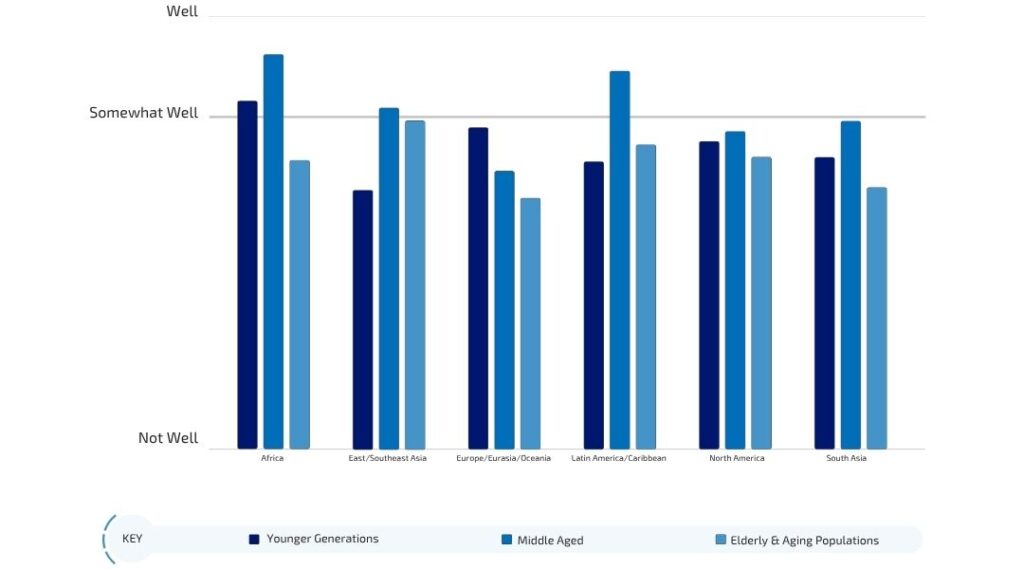


CONCLUSION
This report is a starting point.
The Global Voices survey does not offer easy answers; it offers insight. Across continents, generations, and callings, Christian leaders are discerning what it means to be faithful to Christ in a complex and changing world. The picture that emerges is one of both challenge and opportunity: a church marked by rising hope, yet aware of its vulnerabilities; united in vision, yet diverse in approach.
This report is not the final word, but a starting point. It invites reflection, dialogue, and discernment within the body of Christ. As we consider the findings, we must also ask ourselves:
- How can the church build on the new-found hope for the church in the near future?
- How do we form disciples and leaders who are prepared for the emerging world?
- How can the church collaborate effectively across regions and across occupations to advance the gospel?
- How can the Church be present, faithfully and fruitfully, in digital and cultural spaces?
- What will it take to reach those most often overlooked: the wealthy, the urban, the disconnected, etc?
These questions are not abstract. They are grounded in the lived experiences of over a thousand leaders serving across 119 nations. May their voices not only inform us, but inspire us, to walk more boldly into God’s mission for our emerging world.

SURVEY METHODOLOGY
The Global Voices survey was designed to capture the perspectives of Christian leaders actively engaged in mission-related work across regions, generations, and ministry sectors. The goal was to listen broadly and deeply to those on the frontlines of Great Commission efforts, surfacing both common themes and contextual nuances from around the world.
SURVEY DESIGN AND DISTRIBUTION
The survey included both quantitative and qualitative questions, with a mix of multiple-choice, Likert scale, and open-ended formats. Topics covered included perceptions of the church’s cultural influence, readiness for emerging trends, key challenges and opportunities, and trusted voices in gospel witness. Respondents were also asked to provide demographic information to allow for comparative analysis across region, generation, and vocational role.
The survey was distributed digitally between May and July 2025, using targeted outreach through the Lausanne Movement’s global networks.
RESPONDENT PROFILE
A total of 1,030 valid responses were collected
from leaders in 119 countries, representing
every major region of the world.
Responses were grouped into six
regional categories:
- North America – 223 respondents
- Latin America & Caribbean – 77 respondents
- Europe, Eurasia, and Oceania – 182 respondents
- Africa – 226 respondents
- East Asia & Southeast Asia – 144 respondents
- South Asia – 169 respondents
Respondents also spanned generations:
- Boomers (born 1946–1964) – 308 respondents
- Gen X (born 1965–1980) – 439 respondents
- Millennials (born 1981–1996) – 253 respondents
- Gen Z (born 1997–2012) – 22 respondents
And came from diverse ministry sectors:
- Parachurch Ministry – 501 respondents
- Church Leaders – 275 respondents
- Workplace & Marketplace – 120 respondents
- Theological Educators – 108 respondents
- Other – 26 respondents
- In terms of gender, 800 participants identified
- as male, and 230 as female.
DATA ANALYSIS
After initial collection, the dataset was reviewed to remove duplicate or incomplete responses. Descriptive and comparative analyses were conducted across multiple demographic slices, particularly region, birth generation, and organizational sector, to identify patterns and variations. Open-ended responses were coded thematically to surface recurring insights and regional distinctives.
LIMITATIONS
As a non-random sample, this survey is not statistically generalizable to the global Church at large. However, the breadth and diversity of participants offer a valuable window into the lived experiences and priorities of active Christian leaders around the world. Where percentages are provided, they reflect the opinions of this engaged respondent base.
Learn More
Global Voices
Panel

The Global Voices Panel gathers insights from trusted Christian leaders across every region of the world. Through a global survey, it helps identify where the Church is thriving, where gaps remain, and how we can collaborate more effectively to advance the gospel together.
Lausanne Insights for Global Horizons and Trends (LIGHT)

LIGHT (Lausanne Insights for Global Horizons and Trends) is an initiative of the Lausanne Movement that exists to bring clarity, insight, and missiological analysis to the trends shaping our world.
